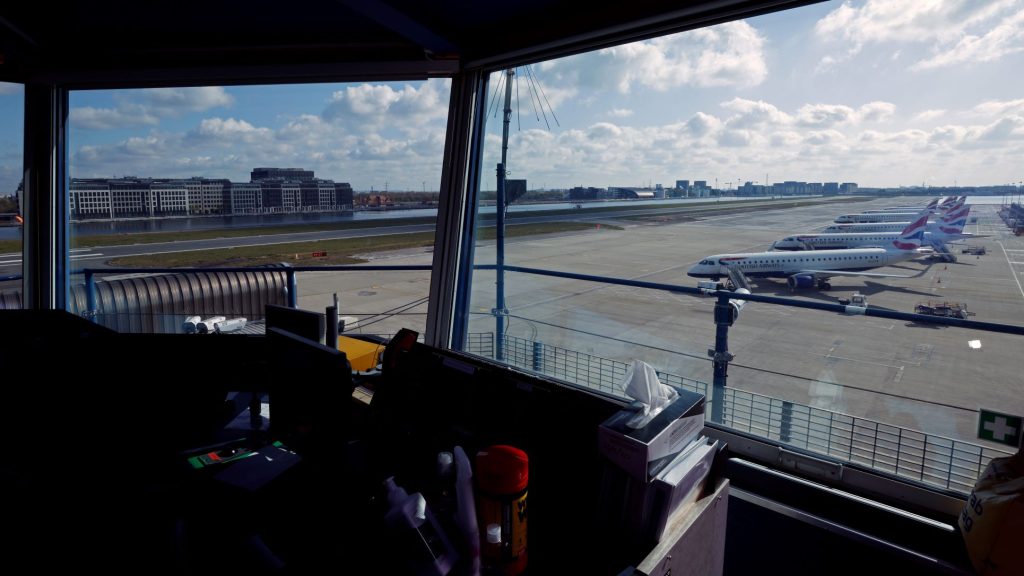
London’s City Airport has vowed to become net zero by 2030, accelerating an original goal of 2050 to get ahead of what it believes will be a move by large corporations to cut flying to reduce emissions, threatening its business travel.
Located beside former dockyards a few miles east of the Canary Wharf financial district, City serves business and premium travel routes across Europe.
It is steadily recovering from the pandemic and on Wednesday set out its plan to produce net zero emissions, believing that both corporate clients and consumers want to reduce their carbon footprint while still being able to travel.
Proposals include switching the terminal’s heating from gas to heat pumps and possibly solar panels, while ensuring all airport vehicles become electric.
“We want to be credible with our sustainability roadmap,” CEO Robert Sinclair told Reuters. “We’ve gone through quite a lot of technical work. If we can do it earlier, we will.”
The plan for net zero, aided by some offsetting where new technology is not yet ready to replace existing operations, focuses on the airport itself, but it is also working with airlines to reduce emissions.
Changes to accept larger planes will reduce emissions per passenger in the short term while in the longer term it is examining everything from new fuel types to “flying taxis” to move passengers around the capital.
“The concern is that people are focused on their emissions footprint and what we don’t want to find is that people choose alternative means of travel,” he said.
“As corporates make commitments to mitigate emissions we want to ensure that when they’re reflecting on the air travel options, they choose London City.”
Demand at City is now running at about 60% of pre-pandemic levels, with numbers increasing every week although business travel is lagging the rebound in general leisure travel.
Smaller than its rivals, London City has also retained strong ties with its staff during the pandemic and has not struggled to cope with returning customers like some other airports have.
(Editing by Jason Neely)